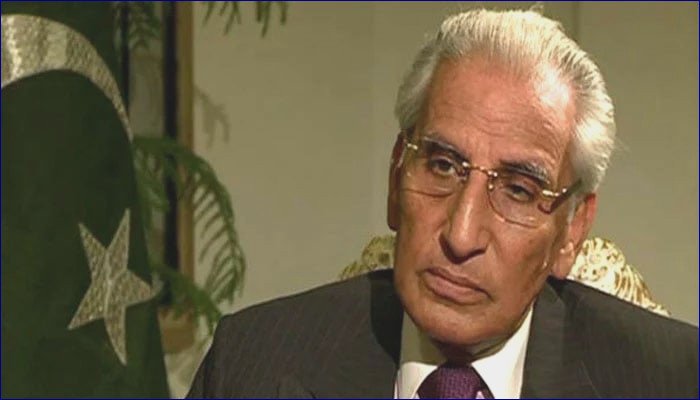In a significant revelation emerging from Islamabad, the Chinese leadership has extended its unwavering commitment to furthering the China-Pakistan Economic Corridor (CPEC). This assurance reaffirms not merely a continuation of existing projects but hints at an ambitious expansion that promises to reshape the economic landscape of the region.
During a recent formal exchange between Pakistani officials and their Chinese counterparts, Ambassador Syed Tariq Fatemi, the Prime Minister’s Special Assistant on Foreign Affairs, articulated this optimism after attending pivotal discussions. The nuances of these meetings unveiled layers of cooperation that transcend mere transactional relations.
Fatemi, in his role as the chief guest at the unveiling of the ‘China Corner’—a new initiative at the Institute of Strategic Studies Islamabad (ISSI)—narrated the fascinating complexities inherent in the Pakistan-China relationship. It’s a relationship that, despite cultural and philosophical divergences, continues to flourish, befuddling scholars and diplomats alike. Pakistan’s historical role as one of the earliest advocates for China’s inclusion in global forums like the UN illustrates a bond built on enduring faith and mutual benefit.
This ambitious endeavor—CPEC—positions Pakistan as a premier player in the broader narrative of the Belt and Road Initiative (BRI). Fatemi eloquently emphasized that this collaboration is not merely a bilateral benefit; it echoes a symphonic harmony that could yield regional prosperity.
In a testament to the growing importance of this partnership, critical attendees included Pakistan’s Ambassador to China, Khalil Hashmi, and Shi Yuanqiang, an esteemed deputy head of mission from the Chinese embassy. The establishment of the ‘China Corner’ at ISSI marks a milestone as the first of its kind in Pakistan’s think-tank arena. Ambassador Sohail Mahmood, the former Foreign Secretary and current chief of ISSI, expressed the center’s pivotal role in fostering research on China, highlighting extensive academic partnerships that speak to the depth of bilateral engagement.
For scholars yearning to delve deeper into this intricate relationship, the ‘China Corner’ boasts an impressive repository—over 600 physical texts and a staggering 5,000 electronic resources covering myriad aspects of Chinese studies. Mahmood articulated that since China’s rise as a formidable global force, the Pakistan-China partnership has matured into an all-weather strategic alliance, a veritable bastion of stability affecting not just the region but the global stage.
Ambassador Hashmi reiterated that this unique alliance has evolved beyond mere diplomatic exchanges; it embodies a profound synergy rooted in trust and respect, poised to act as a crucial bridge for future collaboration. The ‘China Corner’ is envisaged as a fertile ground for ideation, aiming to cultivate a deeper understanding of mutual dynamics.
Echoing this sentiment, Shi Yuanqiang celebrated the bilateral ties as an unshakeable friendship—one that has remained resilient through trials and tribulations, likening it to an enduring rock. As articulated by leaders on both sides, this relationship is poised to foster a vibrant community for shared futures.
In a reflective statement, Dr. Talat Shabbir, Director of CPSC, outlined the mission of the ‘China Corner.’ He promised unfettered access to insights on China’s governance, economic strategies, and diplomatic initiatives, fostering an environment ripe for knowledge exchange and collaborative efforts aimed at mutual advancement.

